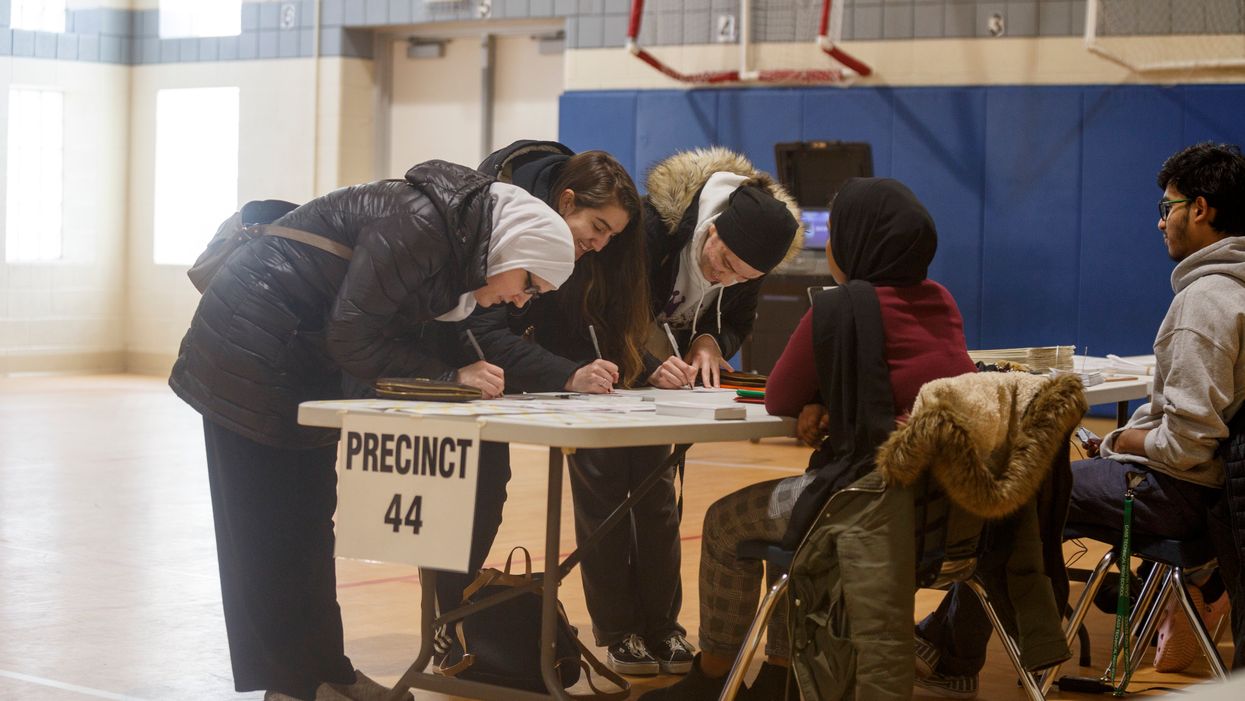Michigan's top court has decided not to weigh in on one of the emerging big issues of the November election: whether absentee ballots delayed in the mail should still count.
The state Supreme Court decision means that Michigan, like most of the presidential battlegrounds and 33 states altogether, will only open and tabulate envelopes that have landed at election offices by the time polls close on Election Day. As a result, the franchise may be denied to millions nationwide unless the beleaguered Postal Service is able to keep up with the coming torrent of mailed-in ballots.
Friday's decision was part of the latest flurry of legal developments over voting rights — including a lawsuit, similar to the one in Michigan, to make Indiana count late-arriving ballots, along with two fresh suits to relax absentee voting rules in Ohio and a bid to force South Carolina to make elections safer for people vulnerable to the coronavirus.
These are the details:
Michigan
The high court divided 4-3 in deciding not to reconsider a lower court decision upholding a state law, which mandates that ballots arrive by the time the polls close on Election Day in order to be counted.
The League of Women Voters had sued in May to make the state count all ballots postmarked on or before Election Day. Only 17 states count delayed ballots, sometimes only if they arrive a day late but sometimes for as long as two weeks after Election Day.
Four Republican-nominated judges voted to not take the appeal, saying it was the exclusive purview of the Legislature to change the rules. Three Democratic nominees dissented. One of them, Justice Richard Bernstein, wrote that he was "baffled and troubled" by the decision to rebuff the case. He pointed out that the Court of Appeals review resulted in three separate opinions, marking the case as a good candidate for the Supreme Court to take up.
Tuesday is primary day in Michigan and election officials already have seen a large increase in the number of absentee ballots compared to 2016. That's mainly because the state has dropped its excuse requirements in the interim, so anyone can vote remotely without explaining that preference.
President Trump is trailing in statewide polls after carrying the state's 16 electoral votes in 2016 by fewer than 11,000 votes. The League of Women Voters maintained that between 41,000 and 64,000 absentee ballots will arrive too late to be counted if the law stands.
Indiana
Common Cause Indiana and the NAACP sued to make the state count ballots postmarked by Election Day so long as they arrive within 10 days. The reliably red state now has one of the earliest deadlines: noon on Election Day, six hours before in-person voting ends.
The lawsuit was filed late Thursday in federal court in Indiana. It argues that even without the coronavirus pandemic, the noon deadline ends up disqualifying many ballots.
"Even in the best of times the Noon Election Day Receipt Deadline disenfranchises voters," the suit says, and "this is not the best of times."
The lawsuit says that in the June 2 primary, which was delayed a month because of the Covid-19 outbreak and during which the vote-by-mail excuse requirements were suspended, several thousand ballot envelopes were tossed for late arrival even though they were postmarked before election day.
Ohio
The two latest lawsuits in battleground Ohio, which has been in the electoral vote column of every Republcian who's won the White House, were filed Friday against GOP Secretary of State Frank LaRose.
In one, the Ohio Democratic Party is seeking to compel the state to allow non-paper applications for absentee ballots, an option that is widely available in fewer than a third of states. Now, the request must be sent by regular mail. The complaint, filed in state court, argues that email as well as faxed requests should be accepted as well —- and that state law already provides for that.
The other suit, brought in federal court by the League of Women Voters with help from the American Civil Liberties Union, seeks to overhaul and make uniform the system of matching signatures on absentee ballot forms with the ones on file at election offices — the main way that states weed out improper if not fraudulent requests. The suit argues there is an impermissible amount of inconsistency because the state's 88 counties have their own standards for evaluating signatures on requests and ballots
Election officials have no handwriting expertise, the suit points out, but counties are able to reject ballots or applications without notifying voters or giving them the chance for a do-over.
South Carolina
Two voters considered "high risk" if they were to contract the coronavirus asked the state Supreme Court on Friday to ease the state's election rules because of the pandemic. The suit asks the court to allow early voting, drop-box absentee returns, curbside voting, online absentee voting applications and more time for election officials to count absentee ballots in the solidly Republican state.
The reason they said they were asking the state's top court for help is that the General Assembly is not planning to reconvene until the middle of September, which the plaintiffs say is not enough time to legislate the changes they want.
"The rapidly approaching general election promises to be tumultuous and to place voters in certain high-risk cohorts, " the suit says, "in harm's way when casting the only ballot they are presently allowed to under South Carolina law: an in-person ballot on election day."




















